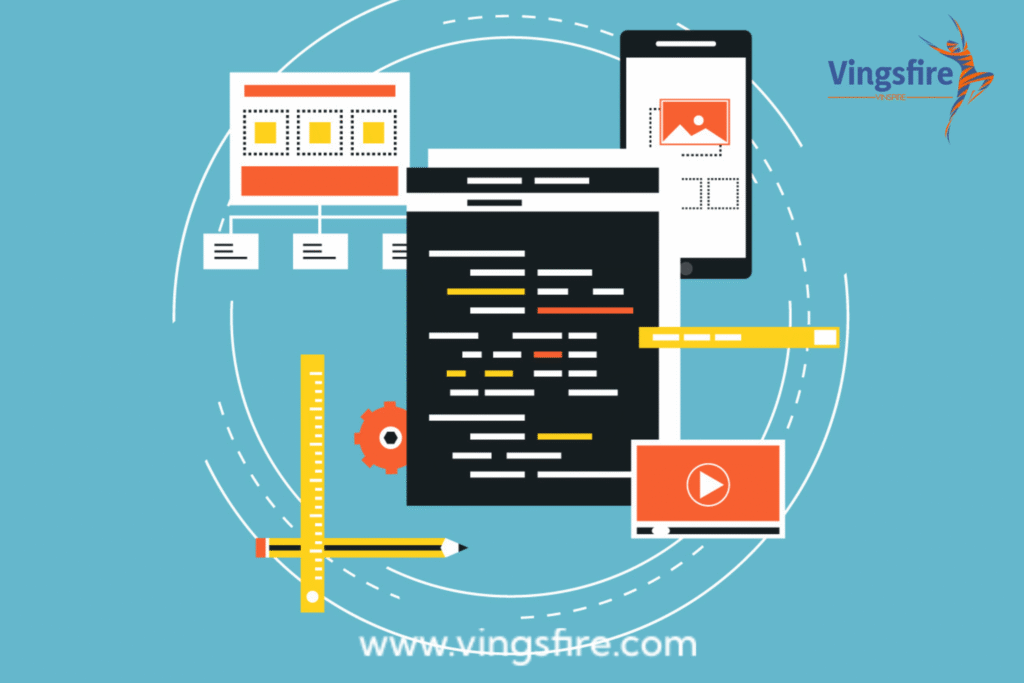
In today’s digital landscape, businesses need websites and applications that deliver seamless experiences across all touchpoints. Full stack web development has emerged as the most efficient approach, with the global market projected to grow at 8.5% CAGR through 2027 (Market Research Future). Unlike specialized development, full stack web development combines frontend and backend expertise to create cohesive digital solutions.
At Vingsfire, our full stack web development team has delivered 300+ projects that collectively:
✔ Generate $200M+ in annual client revenue
✔ Achieve 95+ Google Lighthouse scores
✔ Reduce development costs by 40% compared to siloed teams
This 2,000-word guide will explore:
- The complete full stack web development process
- 2025’s most valuable tech stacks
- Real-world cost and timeline benchmarks
- Performance optimization strategies
- How to choose the right development partner
1. Why Full Stack Web Development Dominates in 2025
A. Market Demand
- 72% of companies now prefer full stack developers (LinkedIn)
- Complete Web Development Solutions reduces project handoffs by 60%
B. Technical Advantages
- End-to-end ownership of features
- Faster debugging across layers
C. Business Benefits
- 30% shorter development cycles
- More cost-effective than specialized teams
Case Study: A Vingsfire client launched their SaaS platform 4 months faster using our full stack approach.
2. The Complete Web Development Solutions Process
Phase 1: Planning & Architecture
- System design documentation
- Tech stack selection
Phase 2: Frontend Development
| Technology | Best For |
|---|---|
| React/Next.js | Dynamic interfaces |
| Vue/Nuxt | Rapid prototyping |
Phase 3: Backend Development
- API development (REST/GraphQL)
- Database architecture
Phase 4: DevOps & Deployment
- CI/CD pipeline setup
- Cloud infrastructure configuration
Pro Tip: Vingsfire’s full stack teams maintain 90% code consistency across project layers.
3. Top Full Stack Tech Stacks for 2025
A. MERN Stack
- MongoDB (Database)
- Express.js (Backend)
- React (Frontend)
- Node.js (Runtime)
B. JAMstack
- JavaScript
- APIs
- Markup
C. Serverless Stack
- AWS Lambda
- React
- DynamoDB
4. Full Stack Web Development Cost Breakdown
| Project Type | Features | Cost Range |
|---|---|---|
| Business Website | CMS, 10-15 pages | $8,000-$25,000 |
| Web Application | User auth, dashboards | $50,000-$150,000 |
| Enterprise Platform | Complex workflows | $150,000-$500,000+ |
Key Cost Factors:
- Feature complexity
- Integration requirements
- Compliance needs
5. Performance Optimization Strategies
A. Frontend
- Code splitting
- Lazy loading
B. Backend
- Database indexing
- Caching strategies
C. DevOps
- Edge deployments
- Auto-scaling
Result: Vingsfire projects average <500ms response times.
6. Emerging Full Stack Trends
🔹 AI-assisted development
🔹 Web3 integration
🔹 Low-code backends
🔹 Micro-frontends
7. Choosing a Full Stack Partner
5 Essential Criteria
- Portfolio diversity
- Stack specialization
- Security protocols
- Performance guarantees
- Post-launch support
Conclusion: Your Full Stack Roadmap
To succeed with Complete Web Development Solutions:
- Define clear requirements
- Select the optimal stack
- Prioritize performance
- Plan for scaling
